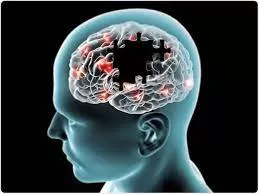
Doctors emphasize that over 50% of stroke survivors may experience cognitive issues like mild memory loss, attention difficulties, and even dementia. This observation comes ahead of World Stroke Day, celebrated on October 29, which aims to highlight the severity and prevalence of strokes. The day also seeks to raise awareness about preventive measures and treatment options, as well as improve care and support for survivors.
The doctors stress the significance of early intervention, stating that early screening and monitoring can play a crucial role in identifying cognitive decline after a stroke. This can help slow down or, in some cases, halt its progression.
However, cognitive impairment in stroke survivors may often be overlooked. This is because individuals and their families may mistakenly attribute memory loss to a normal consequence of a stroke, or assume that the symptoms are part of the stroke itself.
According to the latest scientific statement from the American Stroke Association, one-third of all stroke survivors develop dementia within five years. Moreover, up to 60% experience memory and cognitive problems within a year.
The statement also highlights that approximately 40% of stroke survivors have mild cognitive impairment that doesn’t meet the criteria for dementia. Regardless of its severity, these mental challenges can significantly impact an individual’s quality of life. Additionally, strokes can lead to mental decline, resulting in behavioral and personality changes, depression, physical disability, and disruptions in sleep.
Dr. Prof Vinay Goyal, Chairman of Neurology at Medanta in Gurugram, emphasizes that stroke is a preventable leading cause of dementia. Many patients who experience a stroke later go on to develop irreversible dementia. Therefore, the treatment and prevention of strokes should be a top priority.
Recognizing the signs of a stroke and seeking prompt medical attention is crucial. Early cognitive therapy and addressing risk factors for strokes can be pivotal in improving outcomes. Dr. Gupta highlights the importance of cognitive therapy as a crucial component of recovery, similar to physical therapy. Like physical exercise, mental exercises are essential for a full recovery. Addressing risk factors like blood pressure, diabetes control, weight management, and exercise can reduce or even prevent stroke cases.
Young adults are encouraged to adopt healthier dietary habits, engage in regular physical activity, maintain a healthy weight, and limit tobacco and alcohol use. Moreover, making medications that manage high blood pressure and cholesterol more accessible and affordable is a pressing need, as pointed out by Dr. Amit Srivastava, Director and Senior Consultant in Neurology at Dharamshila Narayana Superspeciality Hospital in Delhi.
The timing of treatment is crucial for strokes, and it should be administered promptly to preserve brain function and reduce the risk of future cognitive impairment, assert the doctors. They emphasize that over half of stroke survivors may face cognitive challenges, ranging from mild memory and attention issues to dementia. While some stroke survivors with cognitive impairment may recover fully within a year, timely treatment of strokes is imperative to safeguard brain function and mitigate the risk of future cognitive decline.










